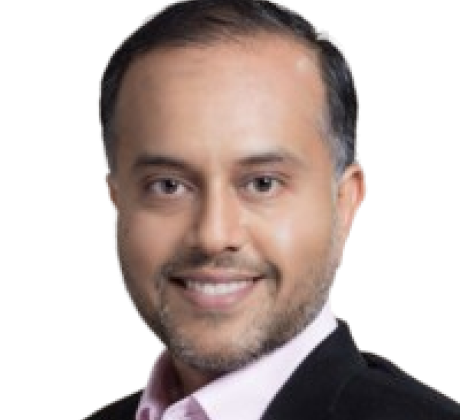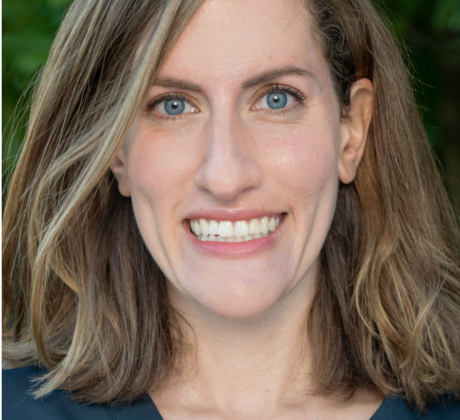Stephanie Ostroff is a speech-language pathologist and journalist. She enjoys blending knowledge from both fields to shine a light on innovators and changemakers in health care.


Sap Sinha, MHCI ’22, improves patient care and cost efficiency
Pages of health history and consent forms packed in a thick envelope isn’t the warmest of welcomes. And yet filling out the stack of papers at home was how patients at Allied Digestive Health (ADH), like those at many health care networks, prepared for their first appointment. Not anymore.
Sap Sinha, MHCI ’22, became the Chief Operating Officer of ADH—which encompasses more than 70 gastroenterology care centers across New Jersey and New York, and is backed by private equity—in 2021. He was inspired by what he was learning in the Master of Health Care Innovation (MHCI) program at the University of Pennsylvania. The check-in process is now digital, and it’s one signal of the many transformations he has initiated.
“We need to rethink how delivery happens,” he says. “And I could do that on a smaller scale in this kind of organization.”
After working for five years as Regional Vice President of Operations at SCA Health, Sinha found an opportunity at ADH to make an immediate impact by leveraging insights from the MHCI.
Under the first three years of his leadership, ADH has succeeded on multiple fronts. Top line revenue increased from $70 to $200 million, and compliance and quality metrics reached new heights. The network received a Centers for Medicare and Medicaid Merit-based Incentive Payment System (MIPS) score of 100, indicating improved levels of patient care and cost efficiency.
Streamlining Processes
The patient profile in gastroenterology clinics has evolved in recent years, as rates of colon cancer in younger adults have increased and awareness of the brain-gut connection has grown.
“So you have to rethink the business. You suddenly have so many new kinds of patients,” says Sinha. “We had to cater to those patients. A 20-year-old is not going to be calling your office and trying to book appointments. They have to book appointments online. And a 20-year-old is not signing the twenty pages of paper. For them, it’s easier to do it on cell phones."
His first step: upgrading ADH’s online presence with a more accessible and intuitive website. Then he shifted the network from paper intake forms to a seamless iPad-based check-in process. The change was embraced by patients of all ages, who are accustomed to touch screens in their daily lives. But other health care administrators initially were skeptical.
“There was a lot of pushback at first. Like, ‘Older patients cannot handle iPads,’” says Sinha. “Which is not true. When they came into the office, they were signing things on the iPads. They were so used to doing that.”
There was this idea of questioning and curiosity that was very evident through the whole MHCI program.
Next he galvanized his team to streamline other processes. He implemented new practice management software that syncs with insurance and tracks denials, while automating components of coding and billing with artificial intelligence. Compliance has increased to nearly 100% in the wake of these changes.
Leveraging Curious Thought Partners
Sinha says it’s not just technology driving the success. It’s also the highly skilled clinicians, compliance team, and startup partners he’s brought in who make the difference: people who share his vision of innovation.
“There was this idea of questioning and curiosity that was very evident through the whole MCHI program,” he says. “These are the kinds of people I brought in: questioning, curious, and solution-driven.”
Sinha added data scientists and consultants to his team at ADH. Meanwhile, he was tapping the collective insight of a different network: his MHCI classmates.
“The MHCI provided me with a forum of really intelligent people. Talking to highly curious, accomplished people outside my organization helped me to better my ideas,” he says. “It forces you to think differently. With a cohort of 30 people, versus my organization, we were really talking about the ideas rather than being embroiled in the politics of the situation.”
Sinha turned to classmates who were physicians as he wrestled with long-standing challenges–like balancing empathetic listening with documentation. He had the capacity to act on those conversations from lessons learned in Translating Ideas into Outcomes, an MHCI course taught by Roy Rosin, MBA and Sarah Rottenberg, MA.
In the past, Sinha played to his strengths in business operations, tapping into an MBA and years of digital health consulting for firms like Boston Consulting Group. The MHCI layered on a deeper knowledge of health care as a whole.
Drawing from Connected Health Care, a course taught by Christian Terwiesch, PhD and Nicolaj Siggelkow, PhD, and Leading Change in Health Care, taught by Ezekiel Emanuel, MD, PhD, Sinha focused on rolling out tools that could address multiple pain points and improve cash flow and care.
Enhancing Care with AI
The influences of classwork and cohort led to his partnership with a startup, Suki. Using ambient dictation, Suki generates notes and integrates them with electronic health records, giving clinicians and patients higher quality face-to-face interactions.
“What I truly believe is technology and humans have to work seamlessly,” Sinha says. “It helps us to do our work better.”
ADH was first on the list of Becker’s Healthcare “GI companies to watch in 2024,” citing their trailblazing use of AI solutions like Suki.
“The idea is we can create a playbook,” he says. “We’re a very tech-enabled practice. I hope that others pick it up.”
The MHCI provided me with a forum of really intelligent people. Talking to highly curious, accomplished people outside my organization helped me to better my ideas. It forces you to think differently.
Expanding Influence
Success at ADH has sparked curiosity, and Sinha spoke about his health network’s growth and compliance strategy at the 2023 Health Care Services Investment Conference. He serves as a business mentor with Techstars Future of Longevity Accelerator, regularly advising and engaging with digital health startups.
He also hopes to inspire other community-based health networks and physicians to get involved with policy, an interest that springs from his education at Penn. “Through the MHCI I got a taste of how much policy affects health care,” says Sinha.
As a result, he founded both the New Jersey Independent Physicians Practice Association and the New York Independent Physicians Practice Association in 2023.
Combined, the organizations have drawn more than 1,000 members. Sinha credits The American Health Care System, taught by Dr. Emanuel, with reinforcing the influence of state policy on health care. He wants to pass that knowledge on to others and empower them to act.
“I’ve been educating our physicians and saying how important this is to them,” says Sinha. “Many physicians want to keep their heads down and see the patients–and I am like, ‘Things could change if you don’t actively talk to your congressmen and participate in local elections.’ This is about creating a voice for independent physicians on policy-making.”
With a deeper understanding of the health care ecosystem and how to shape change within it, Sinha’s own voice has been amplified. He’s prepared to use it to continuously rethink how health care is delivered, decrease costs, influence policy, and, most important, ensure that technology solutions are human-centered.

